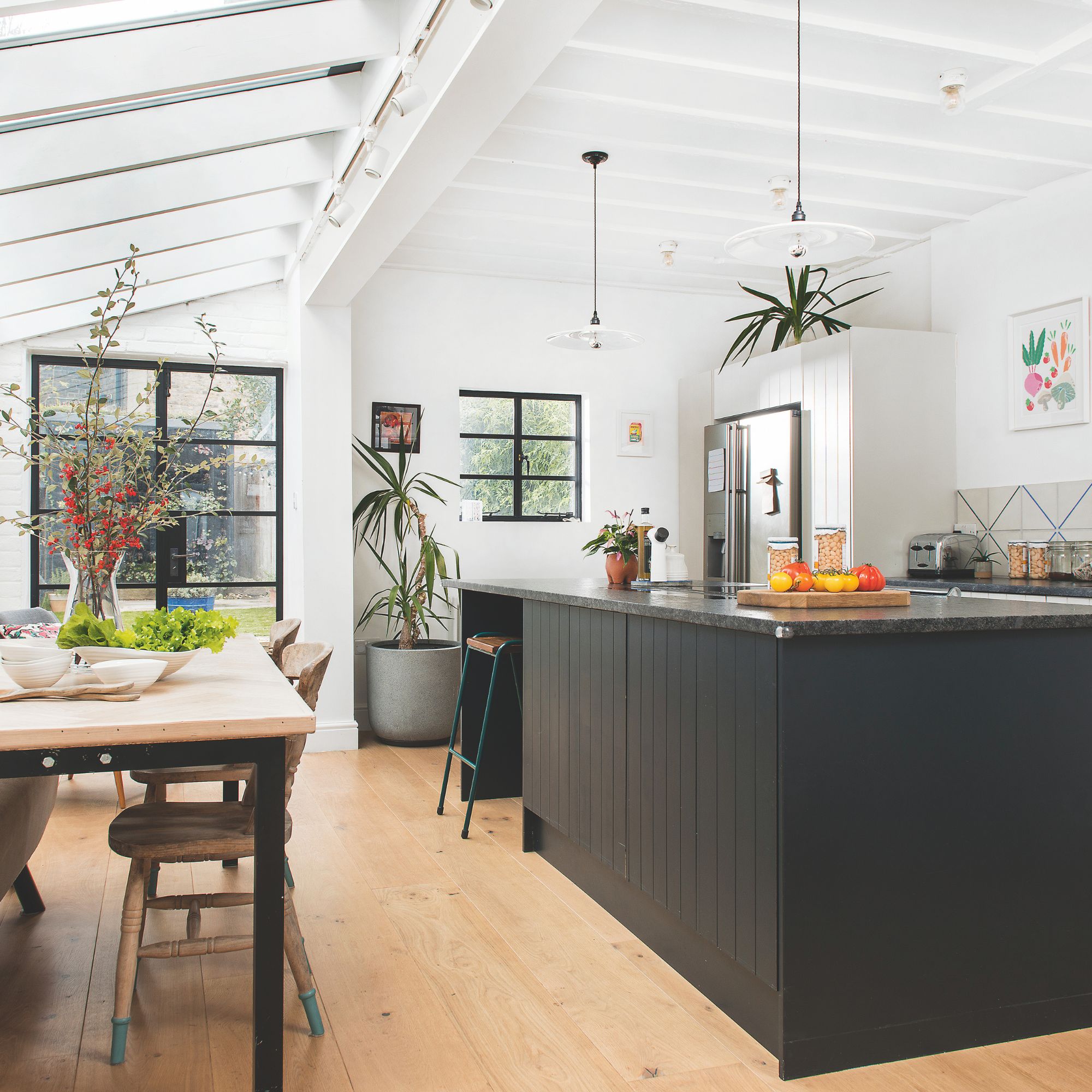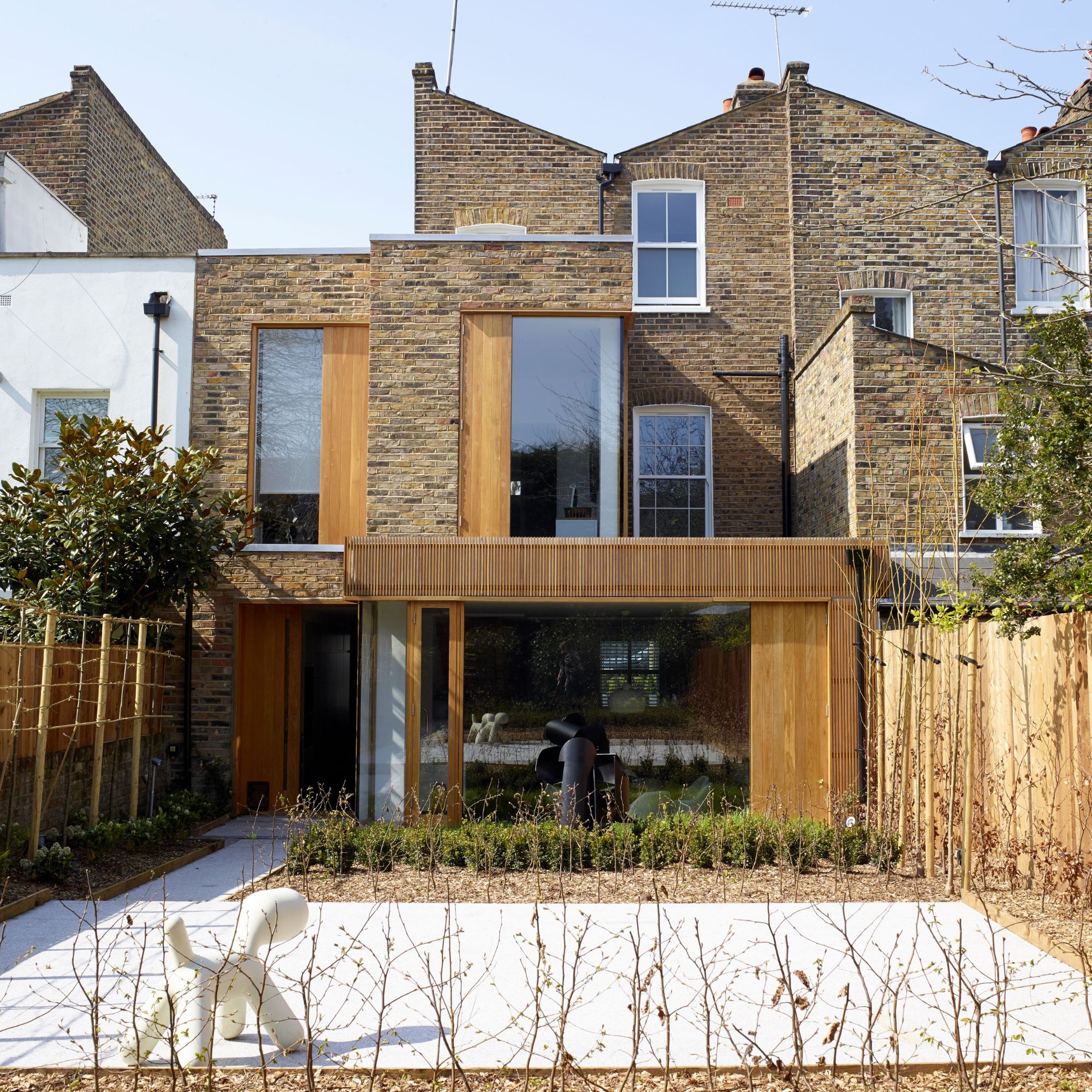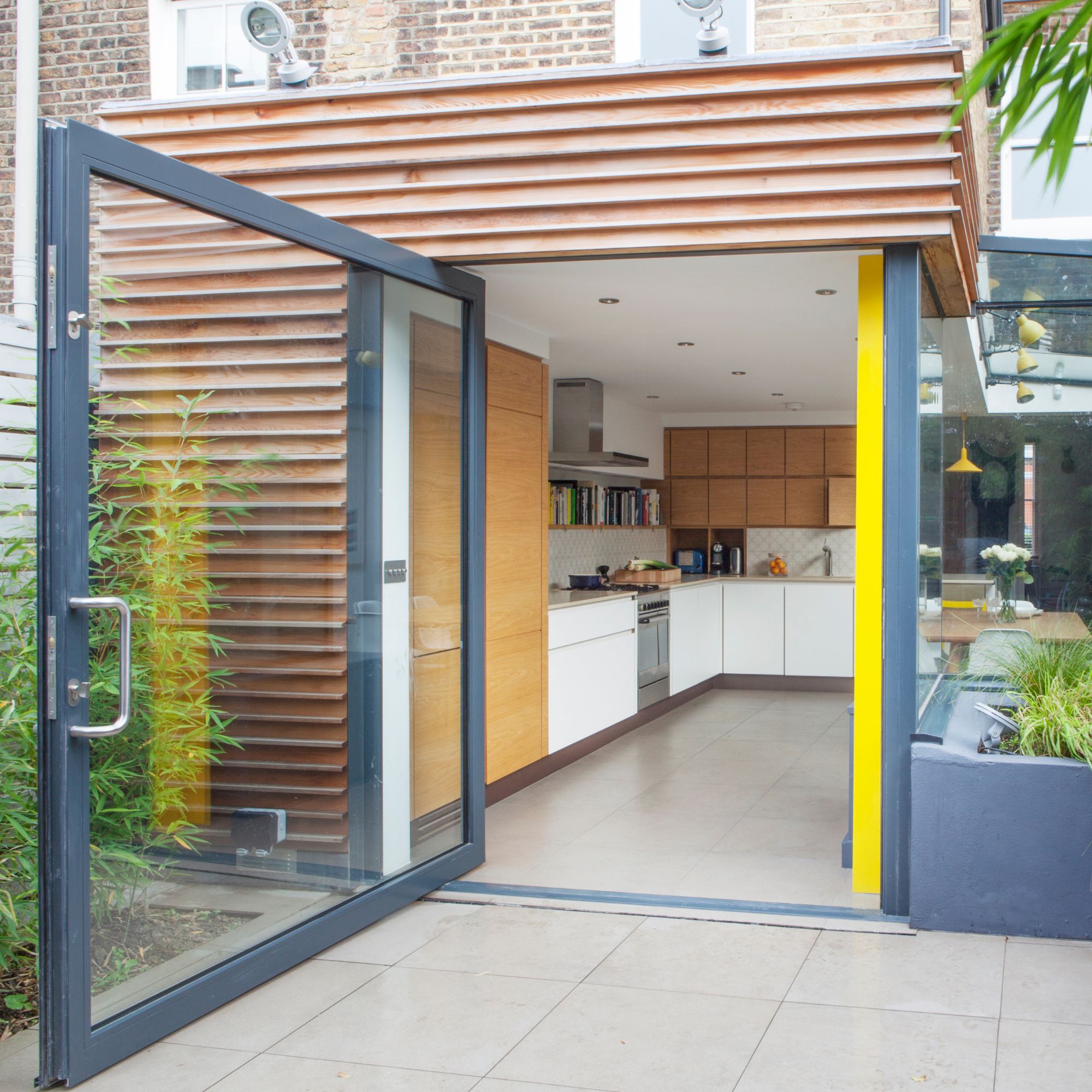
Is it a good idea to project manage your own extension? This is a question often asked by homeowners keen to add space to their houses without breaking the bank.
While it might sound simple to take control of your extension ideas, from the early planning stages up to completion, there is actually a lot more to it than it might at first appear.
'It is time consuming managing a project and it is very important to know if each trade is performing correctly,' warns architect Gregory Phillips of Gregory Phillips Architects. 'If a homeowner envisages doing this they need to be confident they have the knowledge, experience and time.'
If you are considering taking on the role of project manager when building an extension, our guide is here to explain what it entails, as well as the advantages and disadvantages of a DIY route.
Do I need a project manager for an extension?
While there is no legal requirement for you hire a project manager to run your extension, there are definitely some benefits to be had by leaving it in the hands of an experience professional.
If you decide to take more of a back seat role, you have several options when it comes to getting someone else to project manage.
It is very common for architects to run projects from start to finish, drawing plans, securing planning permission for your extension if you need it, dealing with building regulations, liaising with builders and other trades such as structural engineers, roofers, plumbers, electricians and plasterers as to when materials will need to be ordered to site, and how much of everything will be required.

That said, in some cases, building companies will offer a project management service too and, if you are taking a package route, as is often the case when building an oak frame extension, the company will usually project manage as part of their service.
It is also important to note here that even if you decide to project manage, you will still need a 'Principle Designer' and 'Principle Contractor' under The Building Safety Act, which was updated in April 2023. This applies to any building project involving more than one contractor, whether you are creating small kitchen extension ideas or something larger
'You will need a Principal Designer on your project, a role defined under the Building Safety Act, and that party will need to be suitably qualified to carry out the role,' explains Donna Budden, business development director at Eco Design Consultants. 'You will also have to have a Principal Contractor on your project.
'If you act as the Principal Contractor, you will be expected to prepare health and safety documentation, notify the health and safety executive (if your project is notifiable), and generally manage all health and safety issues on site, including site set-up and securing the site,' continues Donna. 'In the absence of a main contractor, you will need to feel confident that you will identify any errors or issues emerging out of the build that a layperson may not normally be expected to see. You will also need to manage Building Control site inspections and any comments emerging out of them.'
What does project managing your own extension project involve?
Before you can decide whether or not you are up to the task of project managing your own build, you need to know exactly what is involved.
While this is not an exhaustive list, in general, the project manager will be responsible for:
- Ensuring the project runs smoothly on a daily basis
- Managing the health and safety aspects of a building site
- Hiring and managing the various trades involved in an extension
- Providing contracts for all the trades
- Handling building regulations and planning permission (your architect may do this for you)
- Ordering materials and building equipment
- Checking the extension is being built to meet specifications
- Dealing with any problems that arise
- Keeping the site clean, tidy and secure

Pros and cons of managing your own extension project
Most things have their good and bad points to consider, and project managing your own extension project is no exception.
'Managing your home extension project is a great way of saving hiring costs for a project manager and having better powers to make decisions,' says Matthew O’Grady director of Thomas Matthew Kitchens & Furniture.
So, just what benefits can you expect if you do decide to pop on a hardhat and transform into a project manger?
Pros
- Lower build costs: 'You can save up to 20% of build costs, by not employing a main contractor, who will add profit and overheads to each trade/supply item,' explains Donna Budden.
- More control over daily decisions: 'You can have control of the sub-contractors and suppliers for your project, ensuring that each party is able to deliver what you are wanting,' points out Donna.
- A tighter grip on costs: 'You can control the costs of each sub-contractor and obtain quotes against each trade/supplier to ensure maximum affordability,' explains Donna Budden.
- Feeling more connected: Whether your focus is on kitchen extension ideas or something else, this is your extension and there is a real sense of pride to be enjoyed if you take control of it. 'You can become more embedded in the build process, and enjoy the process more through being more deeply involved in it,' explains Donna.
- A tailored experience: By project managing you get to say when and how things happen. 'You can dictate the pace of a build project, slowing down and speeding up where you want to, as opposed to working with a main-contractor dictated programme,' says Donna.

Of course, just as there are ups, there are also downs to be acknowledged.
'A decent main contractor earns profit because they have the skills and attributes to manage the process,' points out Gregory Phillips.
Cons
- Longer build times: While this won't always be the case, acting as your own project manager, particularly if you are also holding down a job, means the extension could take longer. 'A main contractor will have a trusted supply chain,' explains Gregory Phillips. 'A homeowner will probably not. So it is likely the project will take longer.'
- You will need specialist insurance: 'You will have to take out insurance sufficient for you to manage your own project, which may cost more than via a formal building contract between main contractor and employer,' advisees Donna Budden.
- Health and safety is your responsibility: 'You will be expected to prepare health and safety documentation, notify the health and safety executive (if your project is notifiable), and generally manage all health and safety issues on site, including site set-up and securing the site,' says Donna.
- You will feel time poor: Project management is a full-time job – if you already have another job to carry out, you may well struggle to keep the extension ticking over.
- You need to be available 24/7: Sometimes, decisions need to be made fast and issues dealt with urgently – be prepared for lots of disruptions to your day.
What should you consider before project managing your own extension?

If you are still feeling keen about shouldering the responsibilities of project management, there are several point to consider before making your final decision on the matter – there is more to this that when, say, learning how to tile a bathroom floor.
'It calls for a lot of time, construction know-how and strong leadership ability,' explains Matthew O'Grady. 'In the absence of know-how, many unanticipated challenges come up that can disrupt time and cost expectations.
'That said, a good thing is the experience you will gain,' continues Matthew. 'Looking after the construction activities can be quite beneficial in obtaining first-hand knowledge of construction as well as project management. It may also instill a feeling of self-worth when the project is finished, confident that the vision was personally executed.'
Is it a good idea to project manage your own extension?
If you have time, contacts to call on, are willing to get stuck in and take an active role in the day-to-day running of the site and feel confident you will have the capacity to learn all about and apply the required regulations, permissions and legal obligations concerning your extension, this could well be a good option.
That said, this is a big responsibility and you should also take into account the complexity and scale of your extension. Small, simple side extensions are one thing, but a two storey design featuring lots of glazing and complex architectural details is another.
'As a professional architect, I only recommend homeowners delegate project management to the professionals,' advises Gregory Phillips.
FAQs
How can you be a success as a project manager?
If you've decided to take the plunge and be your own project manager, how can you make sure you don't make a mess of it?
'Employ an architect,' advises Donna Budden. 'They can help you to properly prepare for your project on site, help out with third party approvals, act as Principal Designer on your project and assist on change management.'
Donna also has some other valuable tips.
'Prepare thoroughly – ensure all your statutory documentation – planning, building regulations approvals, other third-party approvals – are in place. Do not hurry onto site.'
And if you don't yet know how much does an extension cost, this is the best place to start.
'Obtain a QS-costed price for the works before you commence, to use as a starting point for budgeting your work, and make sure that you have enough money in the bank to pay for the build, plus at least 10% contingency,' continues Donna.
And, finally, communication is key to project managing successfully.
'Communicate with your neighbours and other interested parties and let them know what you will be doing,' says Donna.
If you are considering taking on the role of project manager in order to save money, first looking into what is involved in planning a kitchen extension so you understand what you are letting yourself in for.







